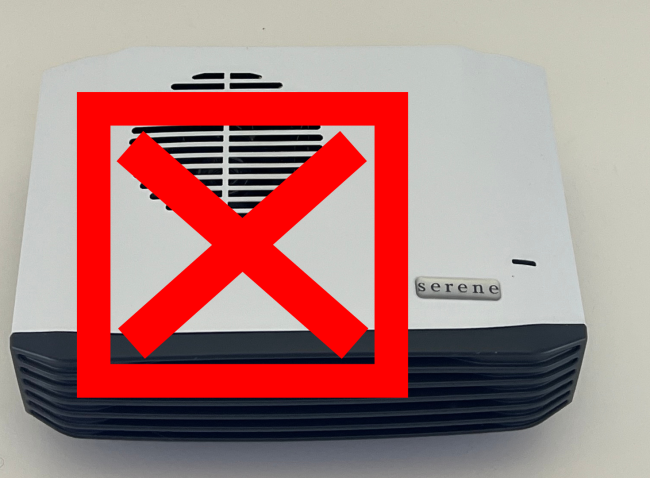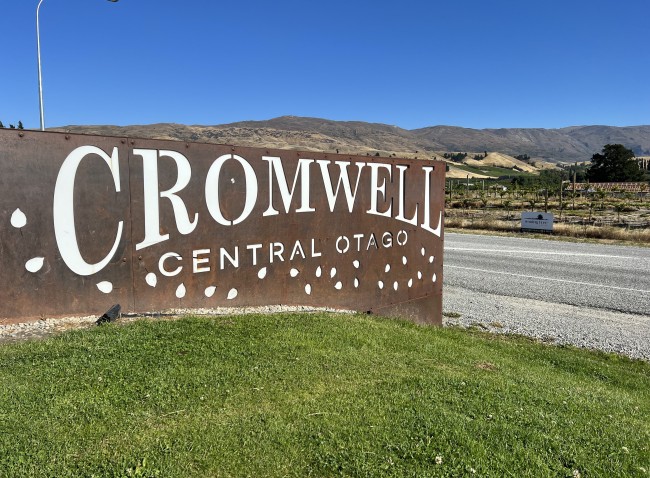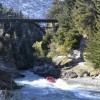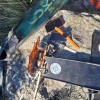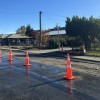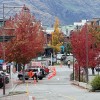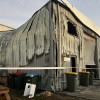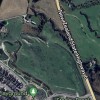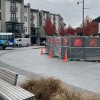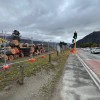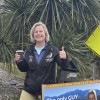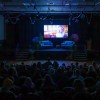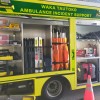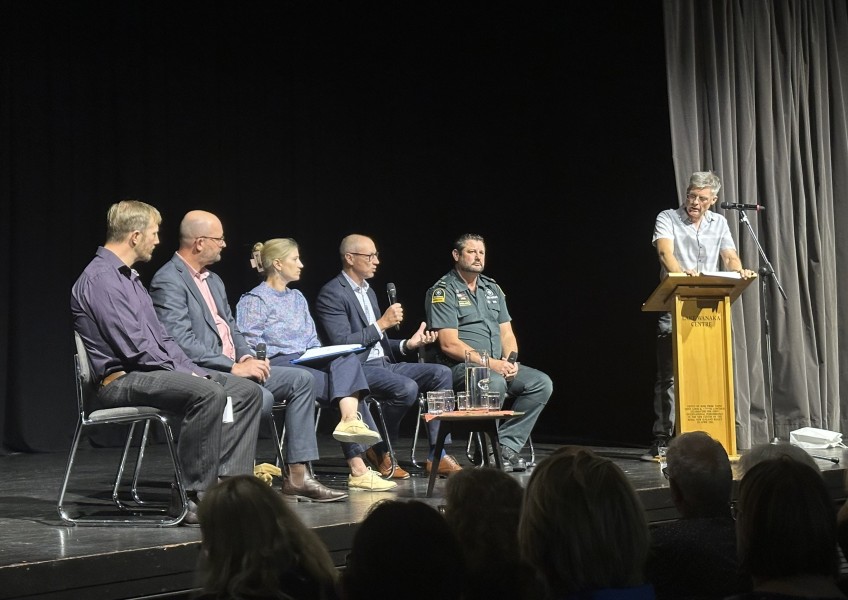
Mass public meeting in Wānaka calls for new hospital
Last night’s public health meeting in Wānaka might be the most attended community board event in New Zealand’s history.
Four hundred people sat or stood around in Lake Wānaka Centre to hear from Te Whatu Ora Southern operational experts and on-the-ground health service managers about the state of local services. The biggest audience reaction of the evening came when the prospect of a community managed small hospital was mentioned.
The event was organised by the Wānaka-Upper Clutha Community Board and facilitated by its chairperson Simon Telfer who directed questions sent in from residents to panel members.
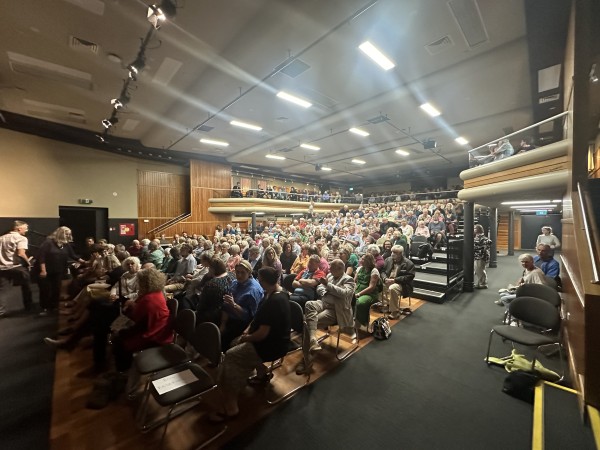
Wānaka residents want answers, and 400 people turned up for the health forum
Wanaka’s aging population, the lack of after-hours care, and the need to travel out of district for basic services or pay for services offered for free elsewhere were all brought up in last night’s discussion.
On the panel was Jonathon Wills (Dunstan Hospital clinical director), David Gow (Te Whatu Ora Southern chief medical officer), Fiona MacLean (Aspiring Medical Centre doctor), Hamish Brown (Te Whatu Ora Southern's director of operations) and David Baillie (Hato Hone St John Central Otago operations manager).
Whilst facilitating, Mr Telfer told the audience and the panel he had to fork out $1020 recently for a post-6pm visit to the GP when his mum had a cardiac event.
Aspiring Medical's Dr MacLean acknowledges it’s “not fair” Wānaka patients have to pay for these services, when elsewhere in the country, they could’ve walked into an Emergency Department.
However, from what Dr MacLean told the audience, there doesn’t seem to be another option to running a cheaper after-hours option.
She says the jobs of GPs in Wānaka are getting more difficult, and the needs of patients are becoming more complex, and worries about burnout for staff.
“It's very hard to expect staff to work the day shift and be good doctors and then work a night shift and then work in the day shift. It's just not safe for patients.”
Te Whatu Ora Southern's director Mr Brown admits they’ve underestimated population growth in this area.
“We have been caught, I think, on the backfoot particularly around the growth in Central Otago and in Queenstown.
“Planning for this area should have occurred some years ago.”
He reveals later there are no plans for a hospital in this area anytime soon.
“I guess the challenge around a [new] hospital is where is it located? How's it staffed? How's it paid for?... I’m sure everyone is aware of the challenges around the timeline of the new Dunedin hospital and how long it takes to get something out of the ground.”
However, a local hospital seems to be what the people of Wānaka want. The loudest audience applause for the night came in response to Dr MacLean when she said, she’d like to think about what a small satellite hospital in Wanaka would look like.
This was in response to the question from Simon Telfer, who asked each member of the panel, what's one thing you can commit to doing to make the cost of health care more accessible to those living in Upper Clutha?”
It’s unclear whether Dr MacLean and Aspiring Medical can really commit to building a satellite hospital in Wānaka.
Despite the big audience, and some of Southern healthcare’s biggest players sitting in the hot seat, concrete solutions were not offered up to the audience from the panel.
Halfway through the one-hour panel discussion, facilitator Mr Telfer turned to the audience and asked "has this been helpful?"
There were a few yes’s called out – nowhere near as loud as the clap Ms Maclean received for mentioning a hospital build – but several grumbling no’s could be heard from nearby seats.
Dunstan Hospital director Jonathon Wills told the audience that the lack of care in Wānaka is what keeps him up at night.
However, he’s in a tricky spot too, running the Clyde-based hospital, saying it runs in a deficit and cannot pay its staff comparable healthcare rates.
He says they only receive 80 per cent of the funding they need to run from Te Whatu Ora and have to fundraise the rest to provide the public health care service.
And, they don’t receive any after hours public funding to look after Wānaka patients despite the fact 40 percent of those who come through the door are Wānaka residents.
This last fact, when delivered to the crowd, led to an audience gasp from those in the seats.













